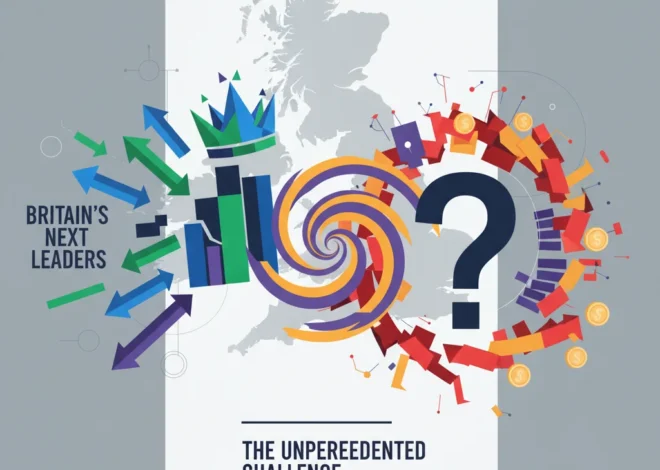
The €300 Billion Dilemma: Why Seizing Russian Assets Could Destabilize the Global Economy
In the complex chessboard of global geopolitics and finance, a move is being contemplated that could reshape the rules of the game for decades to come. The proposal, championed by some G7 nations, is to seize approximately €300 billion in frozen Russian central bank assets and use them to fund the reconstruction of Ukraine. On the surface, the logic seems compelling—a clear case of making the aggressor pay for the devastation it has caused. However, a deeper dive into the mechanics of the global financial system reveals a web of legal precedents, economic risks, and unintended consequences that have central bankers and legal scholars sounding the alarm.
A recent letter to the Financial Times by Paul Doran from Dublin succinctly captures the anxiety felt in nations like Ireland, arguing that participation in such a seizure would be a grave error. This perspective is not an outlier; it represents a crucial, and perhaps underappreciated, part of a debate that pits moral urgency against the foundational principles of the international economic order. This post will explore the intricate arguments surrounding this monumental decision, the profound risks it poses to the global banking and investment landscape, and why a country like Ireland, a hub of international finance, has so much at stake.
The Moral Imperative vs. The Legal Quagmire
The case for seizing Russia’s sovereign assets is rooted in a powerful moral and political argument. With the cost of rebuilding Ukraine estimated by the World Bank to be at least $486 billion and rising, proponents argue that it is only just for the aggressor state to foot the bill. For Ukraine’s allies, using frozen Russian funds presents a way to provide critical support without further burdening their own taxpayers, who have already contributed billions in aid. The political pressure, particularly from Washington, is immense, framing the seizure as a necessary step to ensure Russia is held accountable for its violation of international law.
However, this moral clarity quickly dissolves when confronted with the legal realities. The principle of sovereign immunity is a cornerstone of international law, protecting a state’s assets from being seized by another. This doctrine ensures stability and predictability in international relations, allowing countries to engage in global trade and finance without the constant fear of their assets being used as political leverage. While there are exceptions, seizing the reserve assets of another country’s central bank is virtually unprecedented.
Legal experts are divided on whether a legitimate pathway exists. Some propose novel interpretations of international law, arguing that Russia’s aggression constitutes a fundamental breach that permits “countermeasures” like asset seizure. Yet, many others, including legal advisors within the EU, warn that such a move would lack a solid legal basis and could be successfully challenged in international courts for years, creating a period of profound uncertainty for the entire financial system.
Grounded Ambitions: Why UK Aviation Taxes Could Stall Economic Takeoff
The Domino Effect: Unpacking the Economic Risks
Beyond the courtroom, the most significant risks are economic. The global financial system operates on a foundation of trust—trust that contracts will be honored, laws will be followed, and assets held abroad will be safe. Seizing Russia’s reserves would, in the eyes of many nations, represent a “weaponization of finance” that shatters this trust. The European Central Bank has been particularly vocal about the potential dangers. ECB President Christine Lagarde has warned that such a move could “break the international legal order” and threaten the Euro’s role as a global reserve currency.
The fear is that if Russian assets can be seized, what’s to stop the U.S. or the EU from doing the same to other countries in future geopolitical disputes? Nations like China, Saudi Arabia, and other major holders of foreign reserves would likely view this as a dangerous precedent. The logical response would be to diversify their holdings away from the Euro and the US Dollar, reducing their exposure to Western financial jurisdictions. Such a capital flight, even if gradual, could weaken the Euro, increase borrowing costs for European governments and corporations, and diminish Europe’s influence in the global economy. It would be a strategic own-goal of immense proportions, undermining the very system that gives Western sanctions their power.
To better understand the stakes, consider the arguments from both perspectives:
| Arguments FOR Seizing Assets | Arguments AGAINST Seizing Assets |
|---|---|
| Moral Justice: Makes the aggressor pay for damages, adhering to the “polluter pays” principle on a geopolitical scale. | Legal Precedent: Violates the principle of sovereign immunity, a cornerstone of international law and stability. |
| Financial Support for Ukraine: Provides a massive, immediate source of funding for reconstruction without burdening Western taxpayers. | Risk to Reserve Currencies: Erodes trust in the Euro and US Dollar, potentially causing capital flight and currency devaluation. |
| Deterrence: Sets a powerful precedent that aggression will come with devastating economic consequences for any nation’s central bank reserves. | Retaliation Risk: Moscow has threatened to seize Western assets still in Russia, estimated to be worth billions. |
| Political Expediency: Offers a politically popular solution in Western countries facing economic pressures and “Ukraine fatigue.” | Financial Instability: Creates uncertainty in the global banking system, particularly for central securities depositories like Euroclear. |
Ireland’s High-Stakes Neutrality
This brings us back to the concerns raised by observers in Ireland. Ireland has meticulously built its modern economy on two pillars: a policy of military neutrality and a reputation as a stable, reliable, and law-abiding hub for international finance and investment. Its low-corporate-tax regime and access to the EU single market have attracted hundreds of the world’s largest companies, making it a critical node in the global flow of capital. The country’s success in attracting foreign direct investment is directly tied to its credibility and predictability.
Participating in an asset seizure that is on shaky legal ground could irreparably damage this reputation. For the global investors and corporations that have trillions of euros managed or domiciled in Ireland, the primary appeal is safety and adherence to the rule of law. If Ireland is seen as willing to bend these rules for political expediency, it could introduce a new element of sovereign risk. This could make international firms think twice about headquartering their European operations or parking their capital in Dublin, potentially impacting everything from the local stock market to the broader national economy.
Furthermore, such a move would be a definitive break with Ireland’s long-standing policy of neutrality. While Ireland has unequivocally condemned the invasion of Ukraine and participated in EU sanctions, directly seizing another state’s assets is a step further—a move from economic sanction to economic appropriation. This could have unforeseen diplomatic and economic consequences, altering how Ireland is perceived on the world stage, particularly by the non-Western nations it is actively trying to build stronger trading relationships with.
The 500-Year Portfolio: What a Tudor Mansion Teaches Us About Modern Investing
The Search for a Middle Ground
Recognizing the immense risks, European leaders have been exploring a compromise: instead of seizing the principal assets, they could use the windfall profits generated by them. The vast majority of the frozen assets are held at Euroclear, a Belgium-based securities depository, where they are generating billions in interest. The EU has moved forward with a plan to skim these profits and transfer them to Ukraine. While this is also legally novel, it is seen as a far less radical step than seizing the underlying assets. According to the European Commission, this approach could provide Ukraine with €2.5-3 billion per year.
This “profits-only” approach attempts to strike a delicate balance. It provides a meaningful and ongoing source of funding for Ukraine while leaving the principal assets untouched, thereby preserving—at least in theory—the principle of sovereign immunity. However, some in the U.S. argue this is not enough and continue to push for a full seizure, ensuring this debate will remain at the forefront of international economics and finance.
Conclusion: A Precedent for a More Perilous World?
The decision on whether to seize Russia’s sovereign assets is one of the most consequential facing the West since the war began. It is a choice between the immediate, tangible good of funding Ukraine’s survival and the abstract, long-term necessity of preserving trust in the global financial architecture. While the impulse to make Russia pay is understandable and just, the methods used to achieve that justice matter profoundly. Acting on a legally ambiguous basis could set a dangerous precedent, inviting retaliation, spooking global investors, and potentially fracturing the very international order the West seeks to protect.
For countries like Ireland, the stakes are particularly high. A reputation for stability and the rule of law, once lost, is incredibly difficult to regain. As the world navigates this perilous issue, the cautious voices warning of unintended consequences deserve to be heard. The path chosen will not only determine how Ukraine is rebuilt but will also define the rules of global banking and investing for a generation to come.


